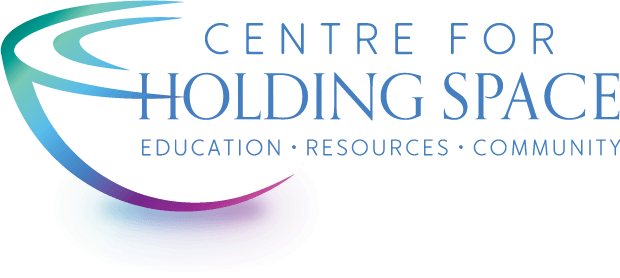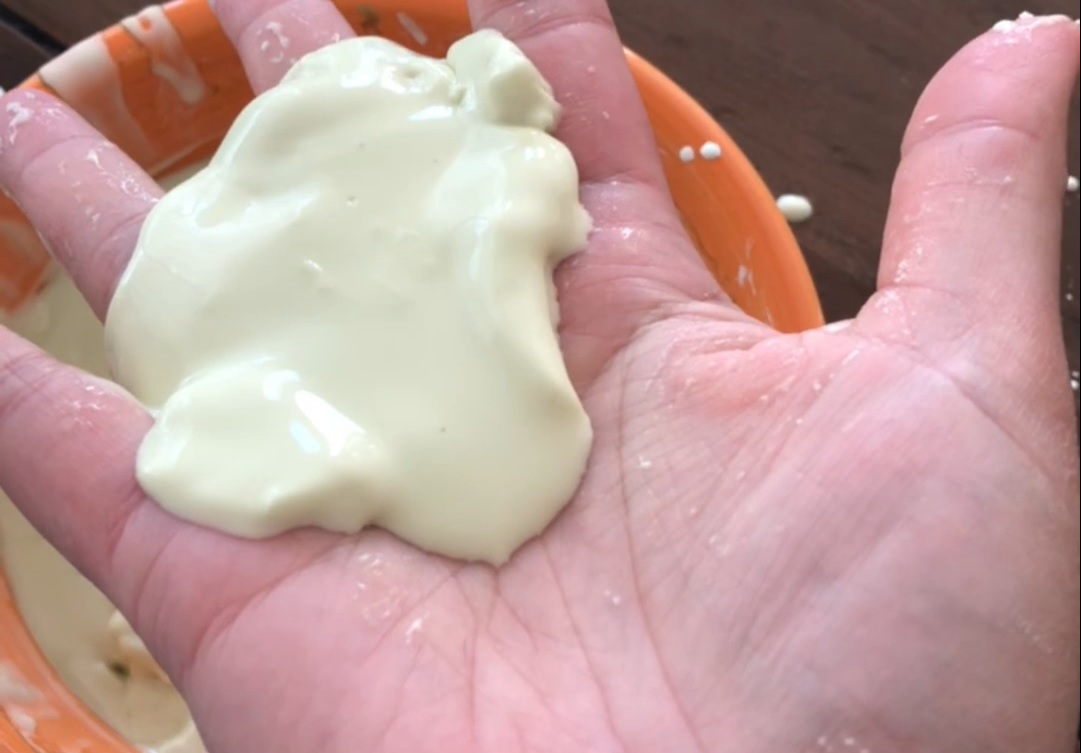by Vicky Bryan, Apprentice Teacher for the Holding Space Foundation Program
Watch Vicky Playing with Oobleck
My son and I were watching Emily’s Wonder Lab one day, and we were learning about non-Neutonian fluids.
What are non-Newtonian fluids?
Fluids in which “viscosity can change when under force to either more liquid or more solid” state. (Wikipedia)
More force = More solid. Less force = More fluid.
To experience the way non-Newtonian fluids change under force, we made oobleck.
Depending on how much force you apply to the oobleck, it will change in response.
Examples:
-If you put the oobleck in your palm, and try to crush it, the oobleck will get ridgid and tough, and may even crack.
-If you hold the oobleck in a cupped hand it will move freely in your hand like a liquid, but won’t slip out (unless you don’t have enough space in your hand).
So what the heck does this have to do with holding space?
In the Centre for Holding Space Foundation Program, we talk about being the bowl.
Heather describes it like this: “When we hold space for another person, we serve as the shell of the chrysalis, offering a safe space for the chaos, the mess, the fear, the grief, and the rage. The shell does not direct or control the transformation, it simply offers a safe and contained space where it can happen without irreversible destruction. It is containment, protection, support and safety.”
-When we hold with an open palm and outstretched fingers, there is autonomy and freedom, but the space lacks containment and protection. Yes, the oobleck can go anywhere it wants to go, but it can also go everywhere and separate from its other ooblecky (? not sure if that is a word) parts and end up as a mess on the table.
-When we hold with a tight fist, we may offer containment and protection and maybe some boundaries, but in the process, the tight fist may be our way to control instead of trusting the process. The oobleck breaks or stays stagnant.
-When we hold with a cupped hand, we offer boundaries and containment within the curves of our hand and fingers, yet the oobleck is still able to move. We are connected to its presence within our hand. As we bear witness, we can move our fingers to adapt to the complexity of this fluid. We open to the mystery and look with curiosity to see what will happen next.
But before holding with a cupped hand, there is a need to sit with our capacity and what we can hold. If we are trying to hold a cup of water and oobleck at the same time, we will eventually get a gooey cup.
Holding space is not a static act. It requires us to be present and aware to the changing needs, both of ourselves (especially ourselves) and others so we can adapt, just like with the oobleck, or it all falls to the floor. There maybe times when we need to hold a more contained space or open our palm a little more, but instead of that change being dictated solely by the feelings or needs of the holder or the one being held, I have learned the shape of the container is a dance between both; it is a relationship.
The work of holding space came into my life 3 years ago and while I thought it would be just something I give to others or something that I would use in a career setting, the most important person I hold space for is myself. It has had, and continues to have a profound effect in so many parts of my life, especially my relationships.
To learn more about the work of Holding Space, I invite you to join the Holding Space Foundation Program. This is an opportunity to learn with a supportive and diverse community from all over the world (at least 12 different countries are being represented)! In addition to the community, there are one-on-one sessions available with the team, and various ways to support your learning, such resources in audio, written and video format.
This a modular learning program (5 modules). You can just sign up for Module 1 – The Basics (October 26, 2020 – December 18, 2020), and if you would like to continue, you will have the opportunity to sign up for module 2 after.
Consider joining us! I would love to learn with you!

